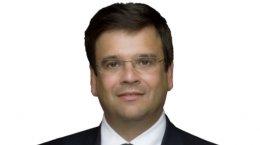From its gaudy office in a non-descript Beijing office block, New York Global Group offers small Chinese companies the chance to realise their dream of raising money from US investors.
Until the US Securities and Exchange Commission recently began investigating Chinese “reverse takeoversâ€, NYGG and its president, Benjamin Wey, were some of the most active facilitators and promoters of such deals and subsequent fundraisings.
Mr Wey says his company is now focused on private equity deals in China. But with more than 200 China-related translations under its belt, it has been a key “bridge†between fast-growing Chinese companies and US capital markets.
A recent NYGG corporate presentation highlights eight US fundraising deals for Chinese companies that it says shows the firm’s record of “reliable and consistent executionâ€.
However, on July 20, the shares of four of these firms were trading at less than half the price they were initially sold to US investors. Meanwhile, one of the stocks had been de-listed from Nasdaq and all eight were trading far below their one-time highs.
Hundreds of smaller Chinese companies have accessed US investors via “reverse takeoversâ€, which involve a company going public by taking over a traded US shell company. This circumvents much of the regulatory scrutiny involved in a traditional initial public offering.
US regulators are not allowed to investigate companies inside China, while Chinese regulators have few incentives to look into companies that may be defrauding foreigners.
This means investors must often rely on the advice of hired stock promoters, and over the past decade a huge industry has emerged to help Chinese companies to go public in the US. Some critics are now blaming these bankers, lawyers, accountants and promoters for taking Chinese firms public that were not suited for listing on overseas exchanges.
Although there is no mention of Bodisen Biotech in NYGG’s latest promotional material, the Chinese fertilizer company was a client of the firm for nearly three years until September 2006, during which time NYGG helped it list in the US and London and raise tens of millions of dollars.
Bodisen is now notorious as one of the earliest Chinese reverse takeovers to be mired in scandal. It was de-listed from the American Stock Exchange in 2007, partly for “internal control weaknesses related to its accounting and financial reporting obligationsâ€.
The exchange said Bodisen had also provided “misleading or inaccurate information†related to its relationship with NYGG and its affiliates, which were paid $6.1m by the fertiliser company. Bodisen declined to comment.
Tiny research groups, such as Citron Research and Muddy Waters, have published devastating reports on bare-bones websites that have left some of the world’s biggest and most powerful investors nursing losses, including John Paulson, Anthony Bolton and Hank Greenberg, when shares collapsed.
John Hatton, a credit analyst at Fitch Ratings, defends the short-sellers: “Arguably, overseas investors are now undertaking the job that China’s under-developed capital market has hitherto struggled to address – challenging Chinese corporate management to adopt higher international standards.â€
But Mr Wey is scathing about the role short-sellers have played in destroying the credibility of Chinese companies listed in the US through reverse takeovers.
“If you have a short seller, or somebody writing a report on something and they don’t even disclose a phone number or an address, and that action is causing tremendous market impact, who is going to be held responsible for that?†Mr Wey told the FT.
Mr Wey also says short sellers have paid journalists to write stories about his past, including the fact he was fined $5,000 and briefly suspended by the US National Association of Securities Dealers in 2002 for “maintaining accounts†at his brokerage firm without informing the firm in writing.
“Five thousand dollars? Probably a few dinners, oh big deal,†Mr Wey said when asked about the NASD sanctions. “No customer was hurt, we never had any customer complaints … there was no wrongdoing.â€
In a separate case, Oklahoma state’s Department of Securities found that Mr Wey had advised a retired 68-year-old woman in 1999 to invest her entire life savings of $80,000 in the shares of Pharmaprint, a risky penny stock, without mentioning that he was a paid consultant to the company. Its investigation concluded that Mr Wey misrepresented the degree of risk involved, according to public filings from the Department of Securities.
Mr Wey promised the woman her investment would double within three months. When it did not, he sold the shares on her instructions in March 2000 for a profit of about $8,000. But he then re-invested the entire $88,682 in the same company on the woman’s behalf without her knowledge.
By the time the woman received notice of the purchase, the investment had lost half of its value. Within three months of the second investment her life savings had fallen to $17,710, the investigation concluded. It also found several other instances where Mr Wey failed to follow customers’ instructions and personally sold shares he was advising customers to buy or hold.
Without admitting or denying any of the findings, Mr Wey agreed in 2005 to be censured by the Oklahoma Department of Securities and to never again do any brokerage or investment advisory business in the state.
Asked about the episode, Mr Wey said: “Unless you’re found guilty you’re innocent … If I could have turned back time 20 years ago I would have done exactly the same thing,†Mr Wey said.
Following the censure, Mr Wey changed his surname, from its previous spelling of “Wei†to its current spelling. He says the change was to make his name sound more American.
There are also questions over some of the claims Mr Wey has made about his background. In various statements and press releases, Mr Wey has claimed to be a consultant to China’s central bank, an advisor to more than 10 Chinese cities and a visiting professor at three Chinese universities.
Administrators reached at two of the universities – Lanzhou University of Finance and Economics and China University of Petroleum – said they had never heard of Mr Wey.
Administrators at the Shanghai University of Finance and Economics said he had never taught its students but had given a couple of guest lectures a few years ago.
The head of China’s central bank research department said he had met Mr Wey and that NYGG had conducted one research project with the bank “four or five†years ago. But he said the bank has never had any formal relationship or cooperation agreement with Mr Wey or NYGG, despite Mr Wey’s claim to have established a “formal research alliance†with the research department in 2005.
When asked to clarify his claims, Mr Wey refused to comment. However, in an earlier interview he attributed criticisms of him to professional jealousy.
“I’m proud of being controversial. I would do it again,†he said. “There was never an admission of wrongdoing in my life.â€
More News From Financial Times





